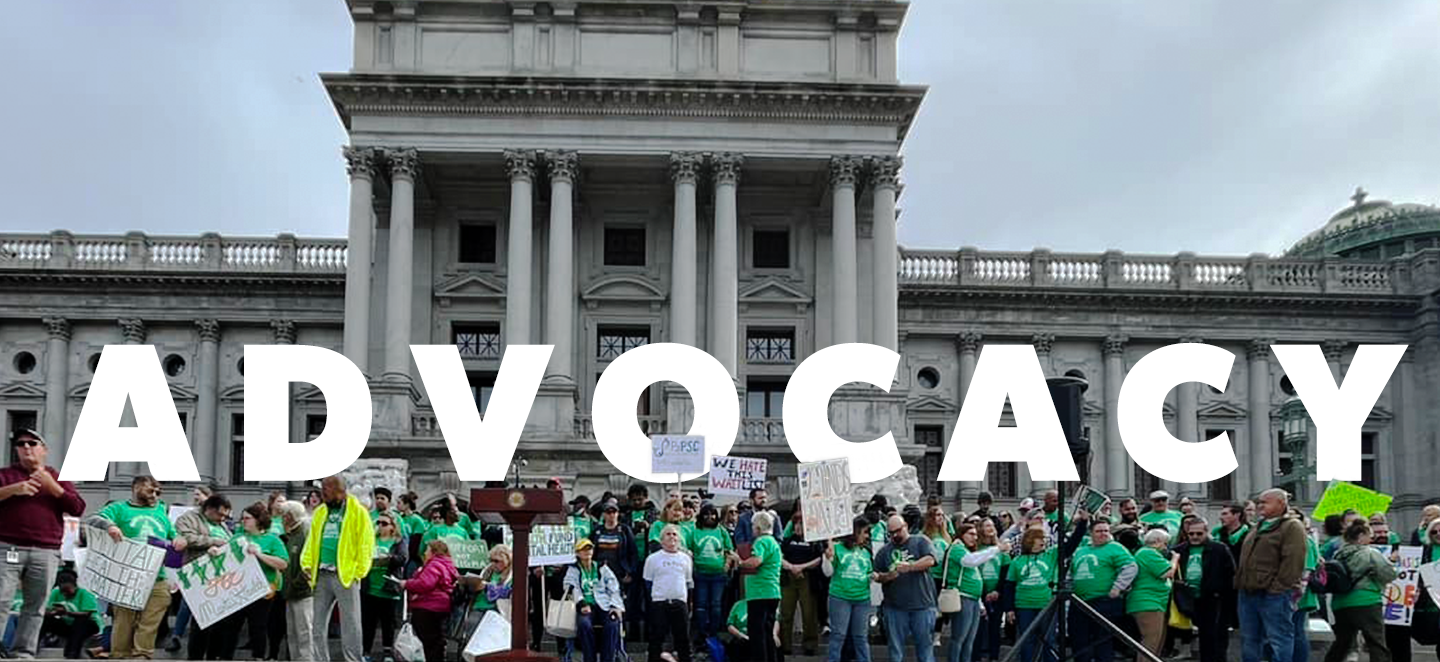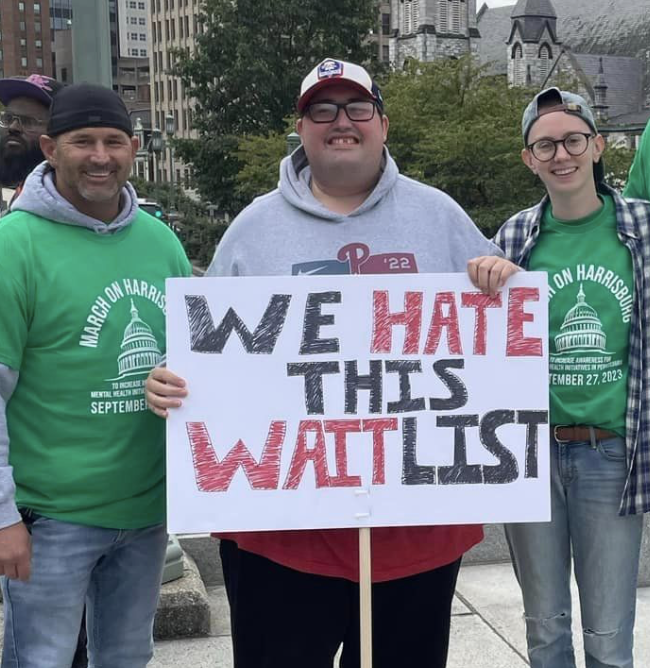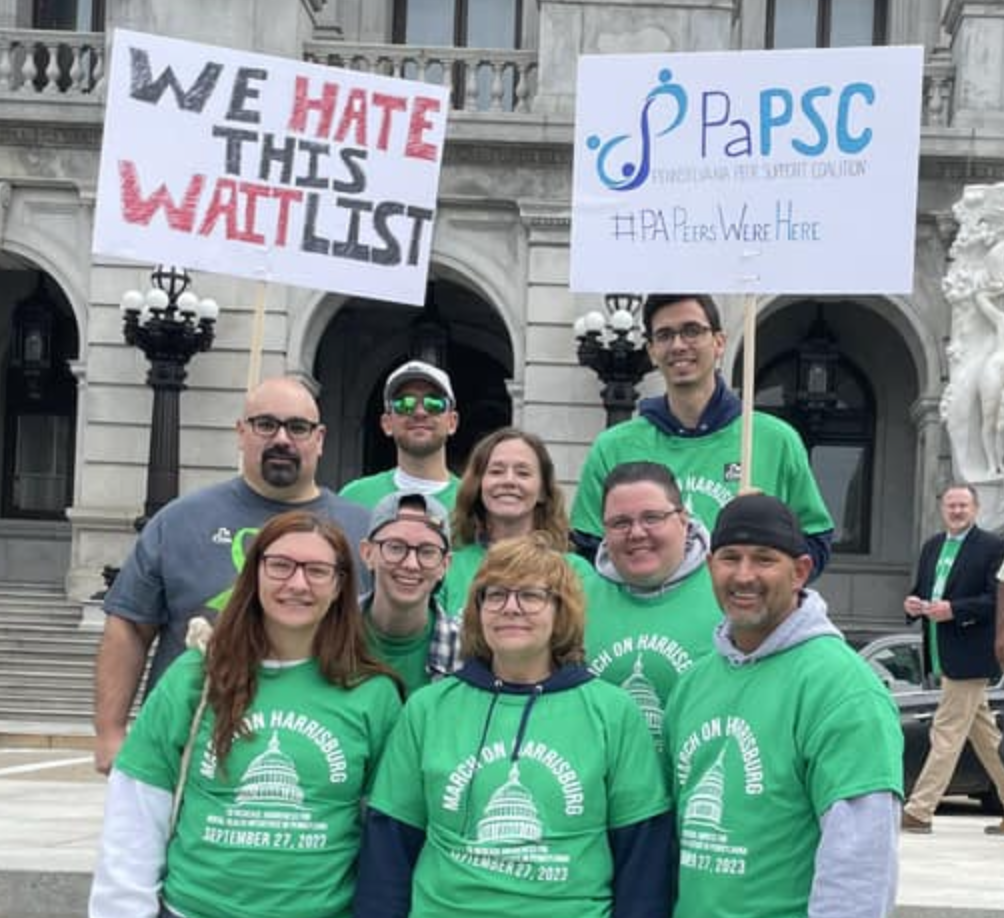PA MENTAL HEALTH |

At PMHCA, we're dedicated to advocating for mental health awareness, support, and change across our communities. Our mission is to create an environment that prioritizes mental health wellness, reduces stigma, and ensures accessible resources for everyone facing mental health challenges.
|
|
Join us in our commitment to nurturing hope and championing recovery-focused policies in Pennsylvania. Together, we can create a landscape that recognizes the value of every individual's journey towards mental wellness.
Explore our resources, participate in our events, and contribute to our shared vision of a Pennsylvania where every individual has access to the support they need for their mental health recovery. Your involvement makes a meaningful difference in fostering hope and resilience across our communities.
|
Get Involved!
Some new advocacy efforts are in the works statewide!
1. Have you been impacted by long wait times to receive services? We are looking for personal stories of waitlist experiences (good or bad) particularly around peer support and recovery based services to function as the backbone in a conversation regarding potential litigation with Disability Rights PA. Keep your eyes open for a link to the survey to submit your response soon!
2. Key stakeholders across Pennsylvania have begun meeting to develop advocacy asks of the legislature, Governor Shapiro, and relevant offices and departments across the state. The first meeting was on November 4th, 2024 and we will continue to work toward statewide advocacy for a better mental health system. Check back here in the next few months to find ways to get informed or involved.
3. PMHCA is beginning an Advocacy Committee and would love to have your voice involved! We are looking for people from across the state with lived experience to share their voices and experiences in order to truly make a difference. Click HERE to apply to be a part of something that is going to propel statewide advocacy forward!
PMHCA is and always has been at the forefront of promoting recovery. We plan to continue to work for what we deserve as humans in recovery. We will always need your help in this movement! You can help by volunteering your time with us at an event, helping us share that recovery is possible in your area, and inviting local organizations to understand recovery better with education and testimonies from those with lived experience. We advocate, educate, and promote recovery by using our lived experience and would love to join you at your event or organization to talk more. If you want to learn more about recovery, check out our recovery focused articles and Promote Recovery page! Another place to make your voice heard is your local or regional Community Support Program (CSP). Community Support Programs are an alliance of mental health consumers, family members, and professionals working together to aid adults with severe mental illnesses and co-occurring disorders to live successfully in the community. These meetings have helped shape the way treatment services are delivered to consumers, improved public understanding and advocated for quality recovery treatments.



